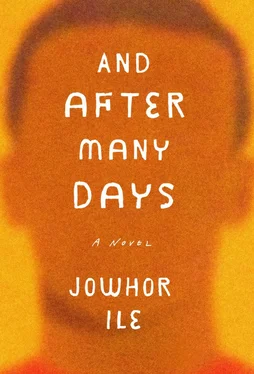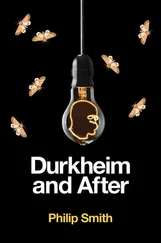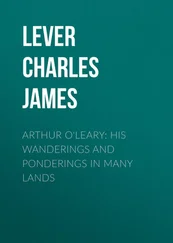“Ogbuku has always been a bit stupid. And his father, Nwokwe, sits back as his son misbehaves like this?” Bendic said. “Someone has to stop him before he goes completely mad. All that Company money he is eating has gone to his head. The fact that a fellow citizen can send the police to arrest another person is a different matter altogether.”
“They call Ogbuku ‘Chop-I–Chop’ these days,” Application Master said. During the campaign for the local government chairman position, his message to the Youth was that whatever he got once he was in office would not be for his pockets alone, that he was not the greedy type, whatever he could collect would surely go around. “You chop, I chop” would be his modus operandi. Not like the old-timers, who he said wanted to keep everyone away from the pot.
“I still don’t see how that gives him the right to eat the money meant for renovation of the only school we have.”
“It takes a certain originality to call that pitiful job he did an upgrade,” Ma chortled. “Ultramodern, indeed.”
“This petition I wrote that is running him crazy, he has no idea I can do worse than that. If I sit down properly and write a petition against him…eh?” Application Master sighed. “These young ones think that they can do as they like.” He touched his breast pocket, but the pens that he always had clipped on weren’t there.
—
A band of policemen had come into the village one morning and arrested four boys. Four boys they found sitting by the road near the empty market stalls. They shot them with Taser guns first to encourage their cooperation. Then they hit them with batons to make sure. By the time people arrived at the scene just after they had taken the boys away, they saw bloodstains in the sand.
Two weeks earlier, Application Master had written a petition against Chop-I–Chop, who was the current councillor for the ward and had his eyes set on becoming the next local government chairman. A contract had been awarded for new classroom blocks for the secondary school in Ogibah. Chop-I–Chop’s company won the contract. The project was billed as an ultramodern learning center. In other words, it was six classroom blocks, complete with laboratories, staff room, library, and gatehouse. Many months passed before work began on the school site. The “ultramodern” project manifested as a three-classroom block with rough unplastered walls and floors, no ceiling, no staff room, no library, no laboratories. Once the roofing was done, pupils began to take lessons in the classrooms because the old block was overfull.
People grumbled: Chop-I–Chop could have followed the blueprint and built decent classroom blocks and still have made a killing from the contract. They summoned Chop-I–Chop to answer for himself at a youth meeting; he didn’t bother to show up. He said the project had been inspected and the execution approved and commended by representatives from Company (who had awarded the contract as a community development project to soothe tempers frayed by the ongoing construction of the new pipeline). Why were they all going mental, Chop-I–Chop asked, about money that did not even come from their own pockets? He dismissed the elders’ talks as the prattle of yesterday’s men.
Application Master then wrote a petition against him to the local government chairman; copies of the petition were sent to the general manager of Company, to the manager of the department in charge of the inspection of the project, and finally, to the office of His Excellency, the governor of Rivers State.
When Chop-I–Chop got wind of the petition, he decided to go shake up Application Master a bit and make him withdraw his submission. Things could be kept quiet at this stage, so he went to the police station in Ahoada and had a little talk with the DPO. Two policemen in plainclothes were dispatched to do the job.
They enter the courtyard of the house and demand to see “Mark Alari, the owner of the house.”
Application Master’s sister in-law, who is in the out-kitchen frying garri, simply hollers over the hiss of the pan, “Who is asking? Who wants to see the man of the house?”
The two men march to the shed and speak to her tersely in English and order her to go find her brother-in-law.
She pulls wood out of the fire. “Just a minute,” she says to them, “please, sit here and wait,” and then hurries out. In no time, word goes around. Strange men called at Mark Alari’s house, demanding to see him, they wouldn’t say who they are. Mark is on his way back from Aduche’s house when the message gets to him. He is told to keep a low profile until they find out who these men are. What do they want? The young men who have gathered wonder among themselves. People from out of town come here, demand to see a man without stating their mission? Oh, back in those days when Ogibah was Ogibah, such madness would not last a second.
Ogibah youth gather at once and march toward Mark’s house. They find the plainclothes policemen sitting on a bench by the kitchen shed and begin to question them: “Who are you? What do you want?” But the men will not say. So they order the men out of the courtyard. They should detain these men. Who knows what they have come for. They look suspicious. They may be hired killers, but even hired killers should know better than to come into Ogibah like that.
A boy pushes one of the policemen. The man pushes back and tells all of them to back off. “We are police,” the man declares. The crowd reels. Police? But the excitement in the air isn’t about to cool off yet. “Show us your ID,” they demand. “Why did you not say this? In fact, we do not believe you. Your ID cards may be fake. Okay, okay, tell us, policemen, what have you come for? What is your mission?”
They have come for Mark Alari, they say. They have come to take him to the station for questioning.
“Questioning for what? What has he done? Who sent you? Show us your arrest warrant. Don’t think you can intimidate us. You must think we are uneducated. To arrest a man from his house, you need a warrant. Is that not what the law says? If you are real policemen, you must know that much, at least!”
“You are obstructing the course of justice,” the policemen say. “You are standing in the way of the law.”
“We will obstruct any obstructable,” a boy shouts back at the policemen. It is getting dark now. Someone from the crowd makes a sudden lurch toward one of the men. The policeman turns around and grabs the nearest person by the neck. “Did I touch you?” the man asks him. “Take your stinking hands off me. You think police work is work?” The policeman’s grip weakens. The man begins to slap the hand off; the crowd cheers. The policeman reasserts himself, tightens his grasp. His colleague has come to his aid, and the crowd closes in. Application Master watches from behind the crowd in a position that allows him a good view of what is going on.
Now enters Agility. He could be anything from seventeen to twenty-four years old. He is an up-and-coming stalwart of Ogibah Youth Front, a mover and an agitator. He gave himself the nickname Agility and bears it with great confidence because, as he said, he looked up the word in the dictionary and was quite proud of the meaning. This boy breaks through the crowd and strides toward the policeman, who is still holding the man by the collar. Agility looks the policeman straight in the face and says in a firm voice, “Leave him.” The policeman ignores him. Slap, slap, pull. Slap, slap, pull. A struggle ensues, and pretty soon everyone joins in.
Application Master raises his voice from where he stands. “Calm down, steady, steady, young men.” He is going toward Agility to calm him when he catches a glimpse of something going up in the air. It is the form of a man: One of the police has been lifted bodily, flung up into the night air, and abandoned, like a sacrifice, and the crowd parts to allow him to land without impediment. He meets the ground with a clumsy thud. Everything goes quiet. There is something quirky about his heavy fall, the sound of corporal damage. He lies there, leg drawn up at the knee. “Maybe he has broken something,” someone says, “a leg, his waist, his neck, his back.” They move closer to the man and do not notice when the other policeman relieves himself of their company. Voices of caution rise from the crowd. “We warned you boys to let them go; whatever comes out of this, you will carry it on your own heads.” “But who knows their mission,” other voices counter. Someone goes close to the fallen man and prods him with a finger. He doesn’t respond. A firmer prodding. Then all of a sudden the man leaps from the ground, grazes a finger on the ground, and disappears into the night.
Читать дальше
